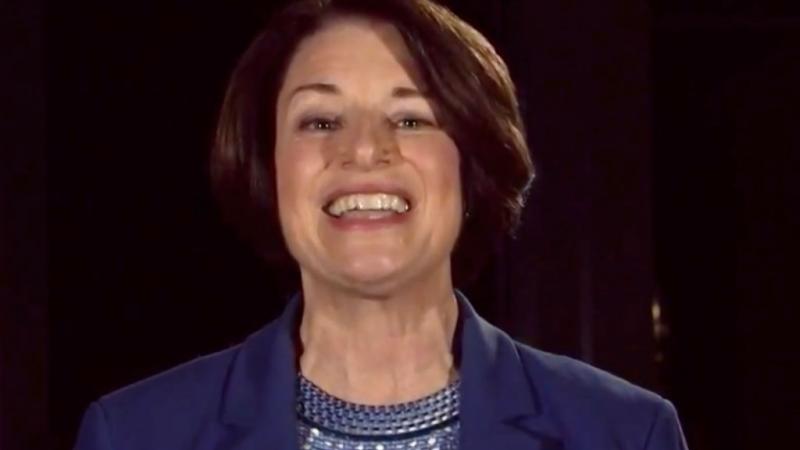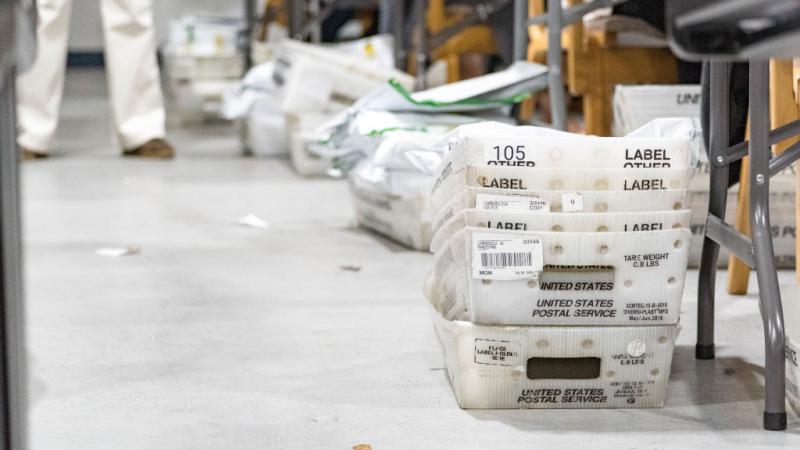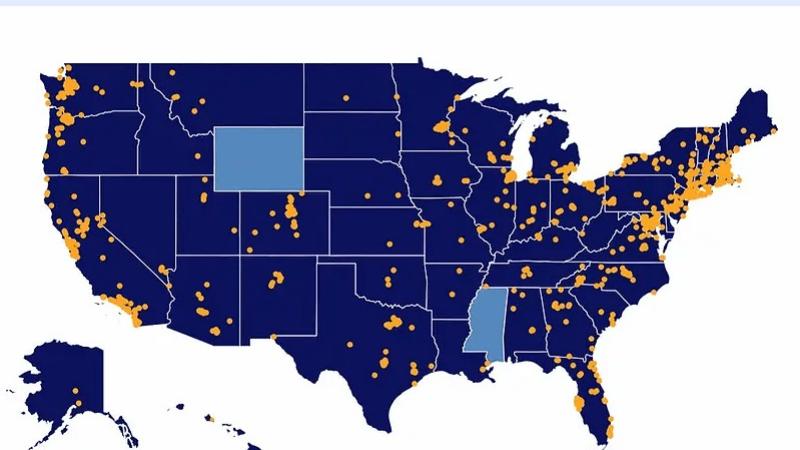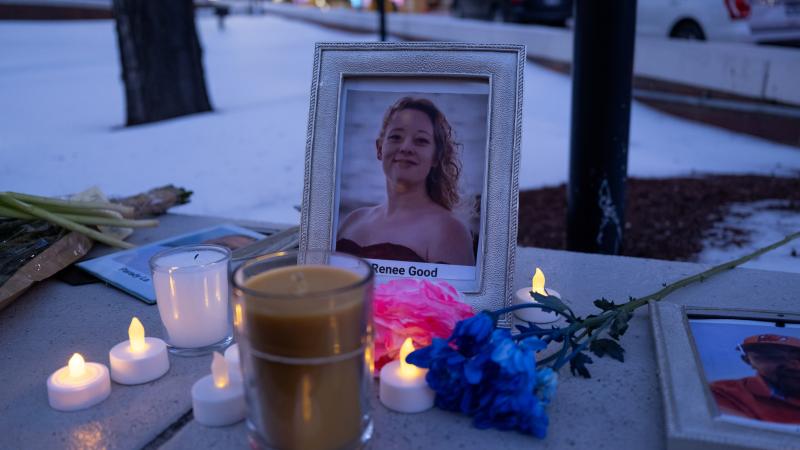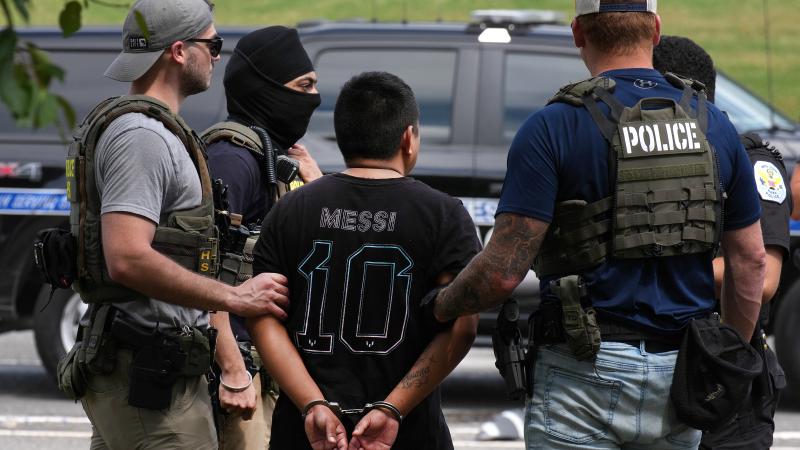Voter drop boxes face challenge in Arizona, as states weigh legalizing, banning or protecting them
The Arizona Secretary of State has been sued for allegedly overstepping state law by permitting unstaffed ballot drop boxes.
As Arizona faces a lawsuit over its ballot drop boxes, states across the country have taken different approaches to using unmanned receptacles for elections.
The Arizona Secretary of State has been sued for allegedly overstepping state law by permitting unstaffed ballot drop boxes, while Wisconsin is facing a lawsuit to allow ballot drop boxes.
Since they were used in 40 states in the 2020 presidential election during the COVID-19 lockdowns, ballot drop boxes have been a significant election integrity issue. While proponents of the receptacles argue that they make voting easier, critics have warned that they are prone to abuse, such as illegal ballot harvesting.
Following the 2022 midterm elections, 76% of 1,200 registered voters interviewed by the Scott Rasmussen National Survey said that drop boxes used to collect absentee and early voting ballots should be available only in places and times where they can be supervised and have video surveillance.
A new lawsuit in Arizona focuses on the lack of required security for ballot drop boxes.
Last Thursday, the Arizona Free Enterprise Club (AFEC) filed a lawsuit through the Thomas More Society against Arizona Secretary of State Adrian Fontes (D) over the office’s Election Procedures Manual’s (EPM) provision for unstaffed ballot drop boxes. The EPM provides instructions for officials to see that they are complying with state election statutes.
The lawsuit, which was filed in the Superior Court in Yavapai County, mentions that both the 2019 and the draft 2023 EPMs allow for the drop boxes, arguing that there is no state law permitting the ballot receptacles.
According to the lawsuit, Arizona allows voters to cast early vote ballots by delivering or mailing them “to the county recorder or other officer in charge of elections” or by dropping off or having a designated person drop off the ballot at a polling location.
However, “the Secretary has invented a fifth option, wholly without authorization from the Legislature,” the lawsuit alleges. “With no basis in statute, and supported by nothing more than executive fiat, the Secretary has authorized election officials throughout the state to employ unstaffed drop-boxes as another manner by which voters may cast their votes early.”
Thomas Olp, Executive Vice President and Head of Election Integrity at the Thomas More Society, issued a statement explaining the issues with the unmanned ballot drop boxes in Arizona.
“These ballot receptacles are allowed to be unstaffed and may be placed in a variety of locations far and wide, including out of doors,” Olp said. “This allows them to be unevenly distributed and placed in unsecured settings. In addition, unlike United States Postal Service mailboxes, these drop boxes lack crucial protections that federal law imposes on postal mail collection.”
AFEC President Scott Mussi released a statement regarding the unstaffed ballot drop boxes: “Our lawsuit contends that state statute limits the use of drop boxes to locations that are monitored by election workers, which can include existing polling locations and the county elections office,” Mussi said.
“Despite this limitation," he continued, "election officials and the existing election procedure manual are ignoring statute and have been setting up unmanned drop boxes all throughout the state. We believe the use of drop boxes must be in accordance with state law, and we are hopeful that our lawsuit will result in election officials ending their use at illegal locations for the 2024 election.”
The Arizona Secretary of State’s office declined to comment on the pending litigation. However, the office referred to a press release published on Tuesday, where Fontes provided a statement regarding ballot drop boxes.
“Ballot boxes are a safe, secure and accessible option to vote early in counties through our state, and have been approved for use by officials from across the political spectrum,” Fontes said. "On behalf of all Arizonans, I pledge to vigorously fight against any attempt to take away a voter’s right to use a ballot drop box, or any other approved voting method.”
Another swing state is also facing a lawsuit regarding ballot drop boxes. In Wisconsin, after the state Supreme Court ruled last year that the ballot drop boxes authorized by the Wisconsin Elections Commission (WEC) for the 2020 presidential election were illegal, Elias Law Group, a law firm self-described as "a mission-driven firm committed to helping Democrats win, citizens vote, and progressives make change" is trying to get the ruling overturned.
Elias is suing WEC on behalf of Priorities USA, the Wisconsin Alliance for Retired Americans and a voter over the ruling against ballot drop boxes. The lawsuit alleges that U.S. Postal Service mailboxes are in fact “unsecured,” and that not having ballot drop boxes “severely burdens the right to vote.”
The plaintiffs brought the case this past July, after then-Milwaukee County Circuit Court Judge Janet Protasiewicz won the election in April for the vacant seat on the Wisconsin Supreme Court, flipping it to a liberal majority. The Republican National Committee, the Republican Party of Wisconsin, and the GOP in both Rock and Walworth counties have asked to join the lawsuit as defendants.
States across the country have taken different approaches to ballot drop boxes, from banning them to making them widely available. According to the Movement Advancement Project (MAP), states that either require or allow ballot drop boxes to be broadly accessible are Alaska, California, Colorado, Delaware, Hawaii, Idaho, Illinois, Kentucky, Maine, Maryland, Massachusetts, Michigan, Minnesota, Montana, Nebraska, Nevada, New Jersey, New Mexico, New York, North Dakota, Oregon, Pennsylvania, Rhode Island, Utah, Vermont, Virginia, Washington, and Wyoming.
States that have ballot drop boxes but either limit or restrict them include Florida, Georgia, Indiana, Iowa, and Ohio.
Jurisdictions that have no law regarding ballot drop boxes are Alabama, Connecticut, Kansas, New Hampshire, and Washington, D.C. However, some of them have used ballot drop boxes starting with the 2020 election.
The states that ban ballot drop boxes altogether are Arkansas, Louisiana, Mississippi, Missouri, North Carolina, Oklahoma, South Carolina, South Dakota, Tennessee, Texas, and West Virginia.
The Facts Inside Our Reporter's Notebook
Links
- used in 40 states
- Scott Rasmussen National Survey
- filed a lawsuit
- According to the lawsuit
- the lawsuit alleges
- released a statement
- Olp said
- Scott Mussi released a statement
- Mussi said
- press release
- Fontes said
- ruled last year
- Elias Law Group is suing WEC
- lawsuit alleges
- Janet Protasiewicz won the election
- asked to join the lawsuit
- According to the Movement Advancement Project
- limit or restrict them
- no law regarding ballot drop boxes
- ban ballot drop boxes


